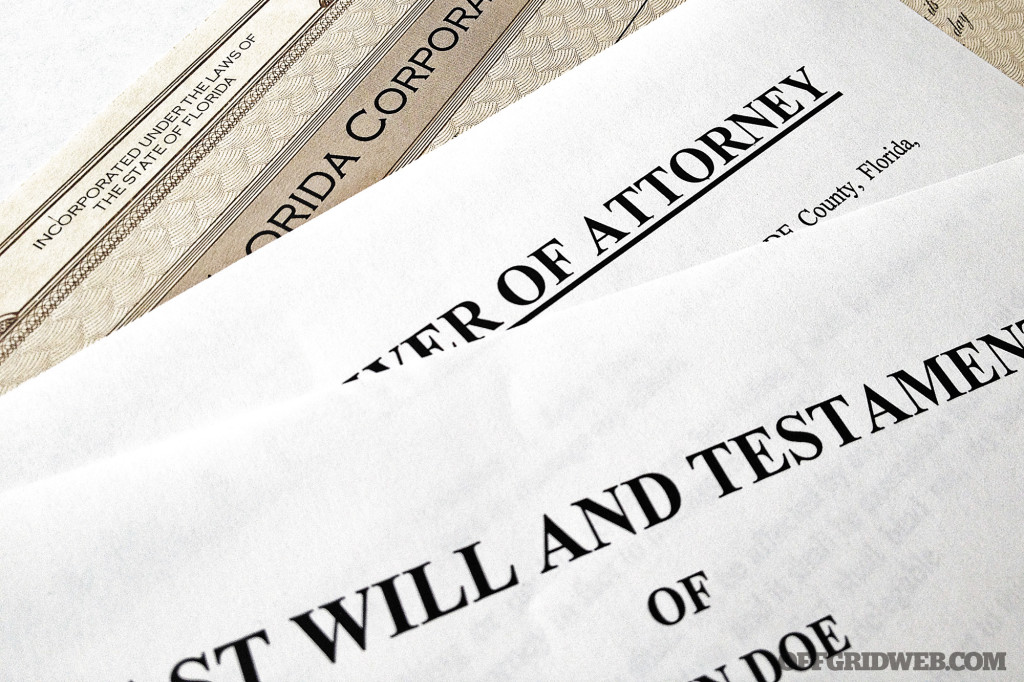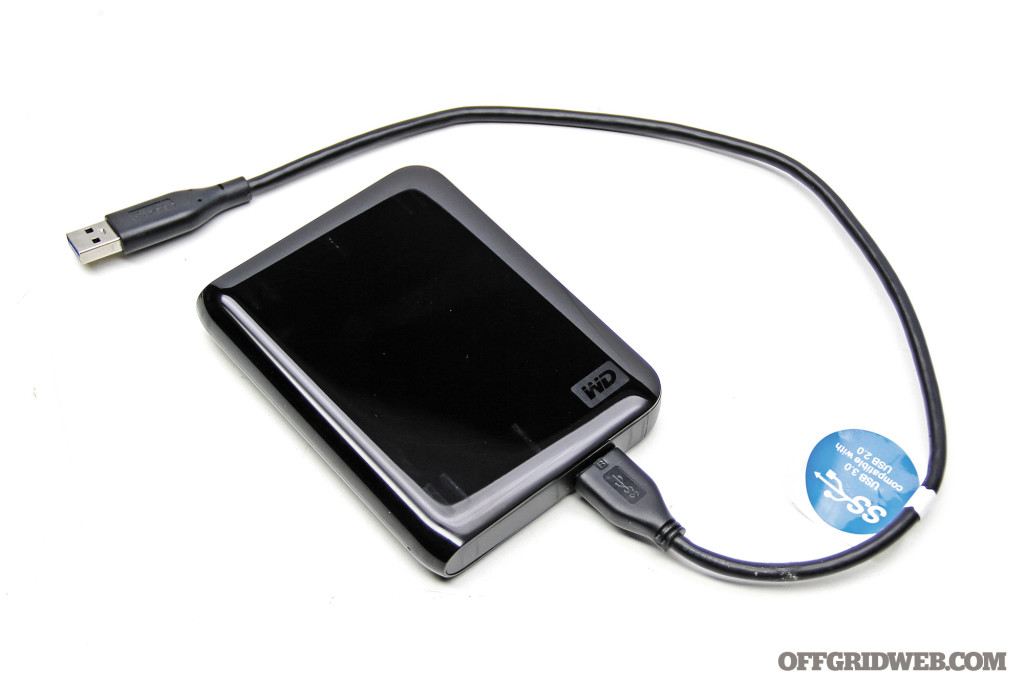RECOIL OFFGRID Survival Legal & Financial Reconstruction After a Disaster
In This Article
This article originally appeared in Issue 3 of our magazine.
DISCLAIMER: The information provided is for illustration purposes only, and is not, nor is it intended to provide, legal and/or financial advice. The reader should consult with an appropriate professional regarding their individual situation. Any use of the information contained in this article shall be solely at the reader’s risk.
You’ve weathered the storm and your family is safe. But, as you emerge from the rubble of what used to be your home, the full extent of the devastation becomes painfully obvious — your house is in ruins, and your personal belongings are scattered as far as the eye can see. Planning and preparation really made a difference in the outcome of this scenario — your food, water, first-aid, and self-defense capabilities are all intact. But, as the days go by, survival efforts taper off and reconstruction begins.

Despite all your excellent preparations and planning, reconstruction will be extremely difficult and time consuming. There are insurance claims to be filed and repairs to be made, but life goes on. In the coming days you’ll need to contact your bank, your creditors, and of course, your insurance company. You start looking for your homeowner’s, auto, and flood insurance papers, your bank records, receipts, and tax returns, but, the last time you saw any of these documents, they were in a box in the second drawer of your bedroom dresser, underneath your ratty old socks. Unfortunately, that room — and its contents — are long gone. What now? Where do you begin?

Ownership documents, wills, and court papers are all important. If lost or damaged, many of these documents are...
From the moment we’re born, we begin to create a paper trail that stays with us until the day we die. That may be quite scary, but like it or not, we’re all linked to a vast collection of documents and records that chronicle our legal and financial lives. And while getting back to normal after a disaster is never easy, without the proper documentation and information, legal and financial reconstruction becomes an incredibly difficult process. Maintaining careful records and securing multiple copies of those all-important documents is an oft neglected but crucial aspect of any viable survival plan.
As with so many things, the best time to protect your records and documents is before something goes wrong. Here are 10 easy and inexpensive ways to help you organize and secure your most important documents and information.
1. Identify and organize: The first step is to identify and organize all your documents. Once you gather everything in one location, the rest becomes far easier.
2. Prioritize: Not all documents are equally important. Your child’s second grade report card or sappy love letters from your college sweetheart may have sentimental value, but it’s not on the same level as a bearer bond, stock certificate, last will and testament, or a birth, death, or marriage certificate. You can still safeguard the report card, but prioritize your efforts.
3. Make a list and record important details: After you have identified, organized, and prioritized, it’s time to make a list. Your list/inventory should describe the document(s), dates, numbers, details, legal descriptions, and so forth. This list will serve as a handy reference and inventory for your hardcopies and/or digital files.
4. Maintain a hardcopy: Many of us have gone digital. From photographs to personal and business records, digital is great. But what happens when the power is out or when no computer is available? Always keep a hardcopy of the most important documents and records. While a copy will not always be accepted in place of the original, the copy will contain valuable information that will be extremely useful in many situations. And it’s ultimately better than having a digital copy that you can’t access.
Above: Maintain physical and digital copies of important documents such as your driver’s license, vehicle insurance card and registration, concealed carry permit, passport, birth certificate, social security card, and health insurance card for safe keeping.
5. Make electronic backups: Scan all important documents and records and store those files on several different devices. Always use encryption software and passwords to secure your data. Consider an online backup service — for about $5 a month many of these services offer an unlimited amount of storage space and provide you with 24/7 access to your files from anywhere in the world. But, remember you’ll still need a computer and an Internet connection to access them.
6. Fireproof storage at home: Invest in a fireproof safe or file cabinet for your home. Nothing is ever guaranteed, but it sure beats using that old shoebox sitting in the closet under grandma’s hand-knitted sweater.
7. Use a safe-deposit box: Hollywood movies aside, this is still the most secure place to secure valuables. But if a disaster takes out your local bank, you may still have a problem. One possible solution may be to store the originals at the bank and keep copies as a backup.
8. Portable grab-and-go storage: A large (e.g. 1TB) external USB portable drive has the capacity to back up all the data from a typical computer with capacity to spare. These drives are inexpensive, easy to use, and highly portable. Be sure to protect the data with a secure password. For a secure password, include a combination of no fewer than 15 upper and lower case letters, numbers, and symbols.

A portable hard drive is a simple way to back up an entire computer. In an emergency, just grab it and go.
9. Have an alternate “safe place”: Maintain a copy of your most important documents at an alternate location with your accountant, attorney, or trusted friend or relative. Again, secure the data with a password, and if possible keep it in a lockable, portable fire-resistant case. It is highly unlikely that a crisis will affect both your primary and alternate locations at the same time.
10. The Bug-Out-Bag (BOB): In the event of a sudden and unexpected crisis, you may have to grab your BOB and go. Maintain a hardcopy of the following documents in your BOB: driver’s license, vehicle insurance card and registration, concealed carry permit, passport, birth certificate for minor children, social security card, health insurance card, banking, financial, and home insurance documents, and credit and debit card information. Secure the hardcopies in a sealed Mylar or plastic bag. There is risk associated with keeping hard copies of these important documents in a BOB, but each individual must weigh that risk against the potential rewards. Consider keeping a password-protected USB flash drive with scanned copies of all your files and records in a watertight match case.
Above: Use a plastic or aluminum watertight match case to store and protect your USB flash drive. Use 1-gallon (10×14-inch) Mylar bags to store copies of documents. Once sealed, the Mylar bags will keep the elements out and your documents safe.
Whether it’s a natural or man-made disaster, house fire, burglary, or maybe just an unexpected bug-out scenario, important legal and financial documents need to be protected and available to us. While we don’t have any control over these unfortunate events, we can certainly take reasonable precautions to safeguard our documents and records — the time to do so is now. Stay safe and be prepared.
Richard Duarte is a practicing attorney and a survival and firearms enthusiast; he currently teaches and consults in the areas of urban survival planning and preparation. He is the author of Surviving Doomsday – a Guide for Surviving an Urban Disaster. For the latest news and updates, connect with Richard at www.quickstartsurvival.com.
 STAY SAFE: Download a Free copy of the OFFGRID Outbreak Issue
STAY SAFE: Download a Free copy of the OFFGRID Outbreak Issue
No Comments